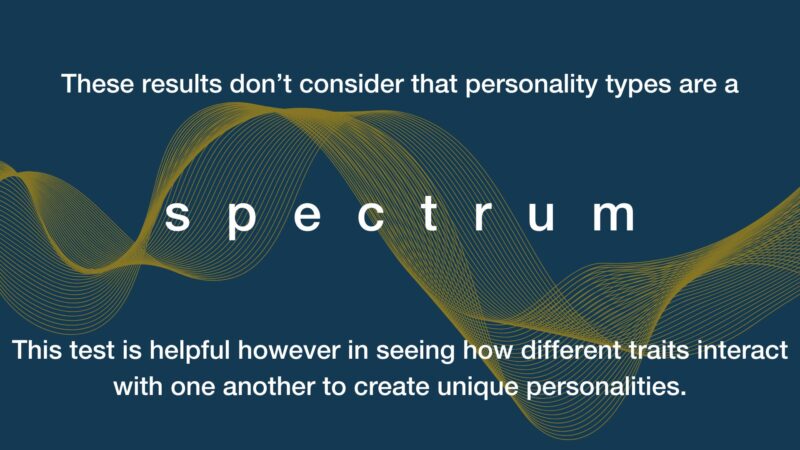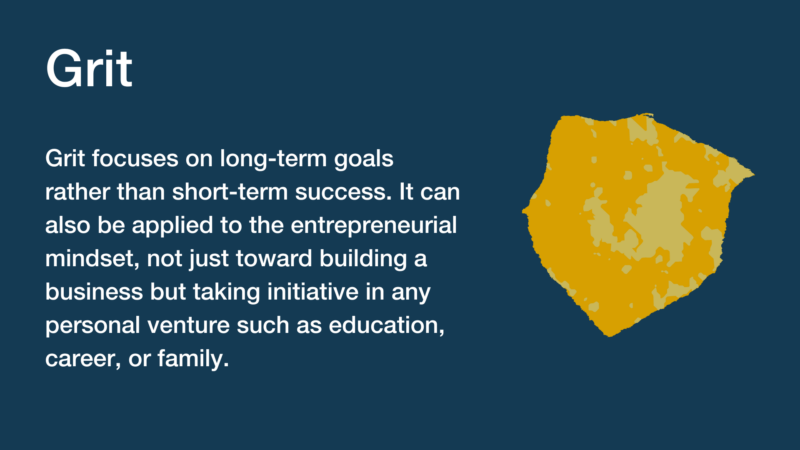What is Entrepreneurship, Really? Do You Have What it Takes?
What is entrepreneurship…really, though? It involves starting and running a business, obviously, but what are the human behaviours that happen behind the scenes and within the psyche of an entrepreneur? This question requires a little more depth to understand.
Worded another way:
What type of person (personality type) do you have to be or what are the key characteristics of an entrepreneur, let alone a successful one?
In this article, we will take a comprehensive look at the different personalities that are most often correlated with successful entrepreneurship, and then you can decide for yourself if this path is for you.
Personality Types at a Glance
There are a variety of personality assessment tools available for business leaders. For example, the DiSC personality assessment is included with a TEC CEO membership. Others include The Big Five model, the Predictive Index, and the Myers-Briggs Type Indicator test.
But, are they accurate enough to guide your career path?
Personality type is not a hard science—it can’t be proven by physical observations. There have however been major advancements in recent years thanks to the ability to conduct surveys at huge scales and get results from a large pool of people. Similarities in people’s personalities have been discovered and this has led to fairly accurate measurements of different characteristics or traits that people share.
There is of course lots of room for error as these assessments are self-reported and there are infinite nuances in human behaviour. However, they give a good foundation for us to understand ourselves, our strengths/weaknesses, and our working relationships.
Questions to consider: What do various personality assessments say about the personality traits of entrepreneurs? And, is there one tool that can accurately predict if someone will be a successful entrepreneur?
DiSC Personality Types for Entrepreneurs
When it comes to understanding personal relationships, collaboration, and communication in the workplace, DiSC is a great personality assessment. However, its range of personality types do not clearly define what skills and talents each person might have, at least not as closely as other personality tests.
The DiSC types acknowledge that there can be different styles of entrepreneurs, each with their own strengths and weaknesses. They are the following:

Dominance
Natural leaders who take charge, risk takers, competitive, goal-oriented.

Influence
Communicators, natural salespeople, relationship builders, marketing specialists.

Steadiness
Time and resource management leaders, team players, patient, reliable, strong work ethic.

Conscientiousness
Detail-oriented, finance specialists, can keep track of important details, organized, streamlined for efficiency.
The possibility of people’s results spanning over two, or one primary and multiple secondary traits, is highly probable, as no two people are the same. Other assessments use similar language, which they claim is closely related to characteristics of entrepreneurship.
Read on…
Myers-Briggs Personality Types for Entrepreneurs
Similar to the DiSC assessment model, Myers-Briggs acknowledges there are different types of entrepreneurs; although, it doesn’t reveal nuances on the spectrum of human behaviour and personality.
Myers-Briggs looks at four significant categories, each one with two contradicting traits, with people leaning to one side or the other within these categories:
- Introversion — Extraversion,
- Sensing — Intuition,
- Thinking — Feeling,
- Judging — Perceiving.
Upon completing the Myers-Briggs assessment, you’ll see if you are introverted (I) or extroverted (E), lean toward sensing (S) or intuition (N), thinking (T) or feeling (F), judging (J) or perceiving (P). The results are given as an acronym, each one representing one of these two options.
One source states that the majority of successful entrepreneurs fall within four types: ENTPs, ESTJs, ENTJs, INTJs.
According to this conclusion, most entrepreneurs tend to be extroverts (E), judges (J), rely on intuition (N), and all revert to thinking (T) rather than feeling (F).
These results don’t consider that personality types are a spectrum. For example, somebody can be a 30% feeler and a 70% thinker. In other words, two people can have the same acronym but will not be the same. This test is helpful however in seeing how different traits interact with one another to create unique personalities.

Conclusion: Entrepreneurial spirit cannot be reduced to four letters.
Next…
Predictive Index Profiles of Entrepreneurs
There are 17 Predictive Index (PI) profiles or personalities, with titles such as “The Controller” or “The Altruist.”
The profiles fall under four categories: analytical, social, stabilizing, and persistent profiles. The results are evaluated on 4 traits, dominance, extraversion, patience, and formality.
Analytic profiles: Task-oriented rather than people-oriented, more dominant, and formal than social.
Social profiles: Highly extroverted and people-oriented.
Stabilizing profiles: Low dominance and extroversion but are high in formality and work well in structured environments.
Persistent profiles: Detail-oriented and prefer high levels of control over their work.
Like other models, different profiles in PI excel in different areas, much like different types of entrepreneurs. Some entrepreneurs are social and specialize in sales, building relationships, and customer service. Others might be analytical and technically skilled and build a business around a product.
That being said, entrepreneurship does require a certain amount of tenacity, which could be considered a close relative of the dominance trait. PI profiles use language similar to other tools that could potentially identify an entrepreneur from the rest of the crowd.
Getting closer…
The Big Five Model and Grit
The Big Five model has identified five distinguishable personality traits: openness, conscientiousness, agreeableness, neuroticism, and extroversion.
The advantage of this model is that it places results on a spectrum for each of the above categories. For example, it measures to what degree are you agreeable: 0% being disagreeable and 100% being the highest level of agreeableness. Results will be anywhere in between in all five categories and some secondary categories as well.
This allows for nuances in personalities and provides a good foundation for understanding who we are as people. Unlike the other personality assessments, it allows for nuances rather than distilling results into a single title to describe a personality. This makes the results deeper and more comprehensive. It also shares traits that have been identified in other tools, such as conscientiousness and extroversion.
But how does it relate to the business ventures?
One more trait to mention…
What is Entrepreneurship?
Grit.

New studies have shown that a different aspect of behaviour known as “grit”, is the closest characteristic we have to describe entrepreneurs. Grit is defined as perseverance and passion for chasing long-term goals. It can also be applied to the entrepreneurial mindset, not just toward building a business but taking initiative in any personal venture such as education, career, or family.
Grit is closely related to conscientiousness in the DiSC assessment and the Big Five model, but grit focuses on long-term goals rather than short-term success. According to this study, people with high grit also tend to be high in openness.
Openness, conscientiousness, and extroversion all have a positive correlation with grit and entrepreneurial characteristics.
Agreeableness and neuroticism have a negative correlation with grit and entrepreneurial characteristics.
Taking a step back, we can see why. Being open to new experiences is a requirement when it comes to starting a business, as the endeavor is very unpredictable. It also might require you to be disagreeable and less susceptible to negative emotions (neuroticism), as there will be many setbacks on your way toward a successful business.
Like grit, passion will come and go to varying degrees. As a result, depending on the extent of passion one has for a given goal, the amount of grit or perseverance they will pour into chasing that goal will differ too. If the passion fades, so will the grit.
Conclusion: The defining characteristic of an entrepreneur is…Grit!
An entrepreneur requires passion, a long-term vision, openness to new experiences, and conscientiousness of success, all wrapped up in a trait called grit. Do you have what it takes? If you’re reading this, you’re likely already on the path or are an aspiring entrepreneur. If you have the passion and can find the intrinsic motivation, keep going! The world needs your passion and all you can bring to the table.
If you need some help along the way (which we all do), consider joining a TEC peer group made up of the highest-performing business leaders in Canada.




